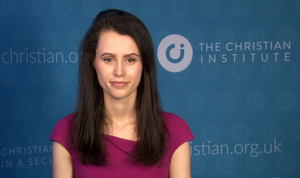Counting heads
The Government has been busy these past few months collating data about every man, woman and child in the UK. But what will this information reveal to the policy-makers?
On 27 March 2011, an estimated 62 million people were questioned in the latest census. The census sparked particular controversy over its inclusion of ‘intrusive’ questions about religion and sexuality, and over some detailed investigation into ethnicity. There was confusion too about a deliberately blank question.
Completed online or by post, it aimed to give the Government a better picture of the sort of people that make up the population of the British Isles; ostensibly, in order to help shape future government policies.
Precedent
It’s not, of course, the first time that censuses have impacted on society. It was the whim of Caesar Augustus, after all, that caused the rush on Bethlehem one very significant night, more than 2000 years ago.
In the 7th century, parts of Scotland and Northern Ireland were subjected to a census called the Tradition of the Men of Alba. In 1086, William the Conqueror decided to compile the Domesday Book to see what taxes he could raise from the people of England.
The 1911 census was used as a political tool by the suffragette movement, with women deliberately spoiling their papers by sticking leaflets into them which said, ‘No vote; no census’ and ‘No people here; only women’.
But this year probably the biggest area of controversy was the question of religious faith.
According to results gathered ten years back in the 2001 census, there were 59,789,194 million people in the UK; and 37 million of these — over 60 per cent — ticked a box that said ‘Christian’. And the issue this time round caused a furore when the British Humanist Association launched a campaign earlier this year, in which they encouraged people not to tick the religious box but put down ‘no religion’ instead.
It is fairly early days yet, but if a ComRes poll conducted on behalf of Premier Christian Media (PCM) is any indicator, 57 per cent of the British public still profess themselves to be ‘Christian’ (Catholic or Protestant); 35 per cent said they had no faith; and 8 per cent said they had another faith.
Peter Kerridge, chief executive of PCM, said, ‘More than half of the UK population consider themselves to be a Christian — whether practising as such, or by having a close affiliation with Christian values and beliefs’.
Caution
We know, of course, whatever people say about themselves, that over half the nation are certainly not real Christians; born again, Bible-believing Christians are, without question, in the minority.
Such a cautious interpretation of the statistics also seems justified in the light of the recent Evangelical Alliance survey 21st century Evangelicals. This shows that the daily practice of faith among those claiming to be regular church-going, evangelical Christians is on the wane. For example, only 77 per cent said they prayed daily and 18 per cent do not listen to or read the Bible ‘at least a few times a week’.
Also, according to the 24-page report, 39 per cent of Evangelicals believe evolution and Christianity are compatible and some 11 per cent disagree that hell is a place where the condemned will suffer eternal conscious pain. Such responses from professed Evangelicals are matters for deep concern.
This latest census raises some more unanswered questions, not the least of which is, ‘Will the 2011 census show Parliament that there is a significant Christian voice in the country that needs to be listened to when it comes to forging policies?’
Challenge
Policy decisions affecting the right of Christians to freely practise Bible-based Christianity are passing daily through the committees of Government, for good or ill. The numbers of those declaring themselves Christians will be taken account of when such decisions are made.
Increasingly, there is a negative outcome to such deliberations and UK Christians find themselves harassed or victimised for upholding God-given principles and publicly witnessing to their faith, even in low-key ways.
But Evangelicals can take comfort, that, when it comes to God’s census, then those who are truly his children will be known to the Lord (2 Timothy 2:19). They, in turn, should be ready to confess Christ — to stand up and be counted.
Just as Christ Jesus our Lord was ‘numbered with the transgressors’ (Isaiah 53:12), taking the punishment of our sins on himself, so we must be ready to ‘partake in his sufferings’ (2 Corinthians 1:5).



















